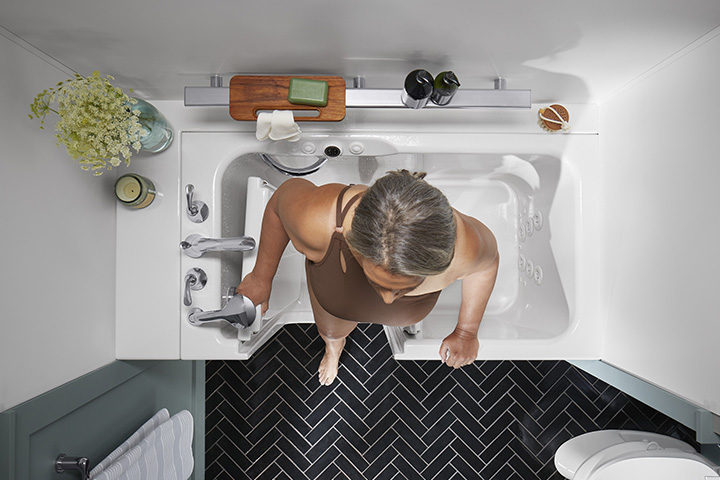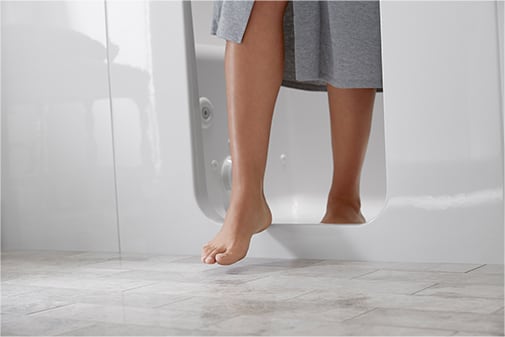- Aging In Place
- Caregiving
- Aging In Place
- Caregiving
A Caregiver’s Guide to Bathing a Person With Dementia
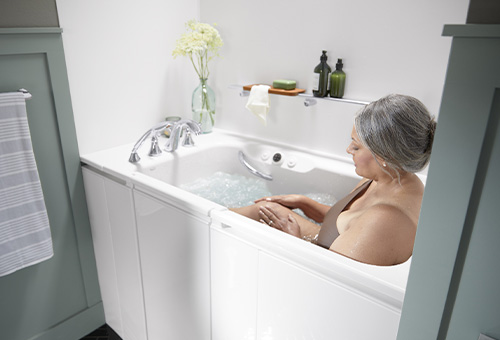
Caring for a loved one with dementia, Alzheimer’s disease or another cognitive impairment can be challenging, especially if they refuse to bathe or shower.
As their caregiver, you can make bath time a safer and more pleasant experience by understanding why they may be resistant, respecting their personal boundaries and creating a comfortable bathing environment.
Try these eight strategies when helping someone with Alzheimer’s or dementia maintain good hygiene practices.
Why People With Alzheimer’s May Not Want to Bathe
A person with dementia may become resistant or combative toward bathing because they feel embarrassed by the loss of independence and privacy during an intimate activity. They may also be overwhelmed by the steps of getting in and out of the bath, undressing, washing, and drying themselves with limited coordination.
Understanding these underlying reasons for resistance to bathing can help you approach the bathing process with empathy, patience and compassion. This will make the experience more comfortable and less stressful for your loved one.
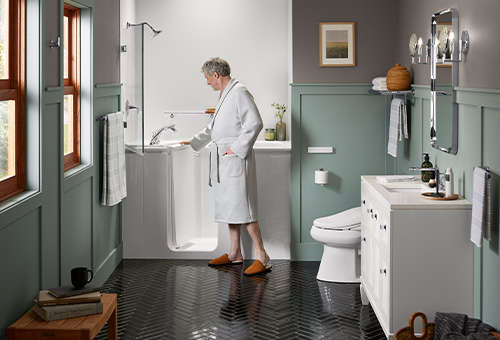
How to Help Dementia Patients to Take a Bath
Explore eight tips that can help create a safer, more enjoyable bathing experience for you and your loved one with Alzheimer’s.
1. Avoid Arguing
People with Alzheimer’s may have difficulty understanding the importance of personal hygiene and may feel embarrassed or fearful during the process. Engaging in an argument can cause them to become agitated or frustrated, which can escalate into verbal or physical outbursts.
Instead, try to understand their perspective and provide gentle encouragement and reassurance. Giving clear and calm instructions (whether visual or verbal) during the bathing process can help your loved one feel safe and reduce their stress levels.

2. Establish a Routine and Stick to It
People with dementia often struggle with changes in their daily routine, and bathing can be a particularly stressful or confusing experience for them. Setting a regular time and place for bathing can create a sense of familiarity and predictability, which can help soothe their anxiety and increase cooperation.

4. Incorporate Familiar Items
New or unfamiliar environments can be confusing and disorienting for people with dementia. Adding familiar items can help create a sense of comfort and relaxation while also providing a connection to old routines and habits. For example, using the same brand of soap or shampoo that the person has used for years can trigger positive memories and associations and help them feel more at ease.
Your loved one may also feel more confident using items they recognize and know how to use, making them feel more independent.
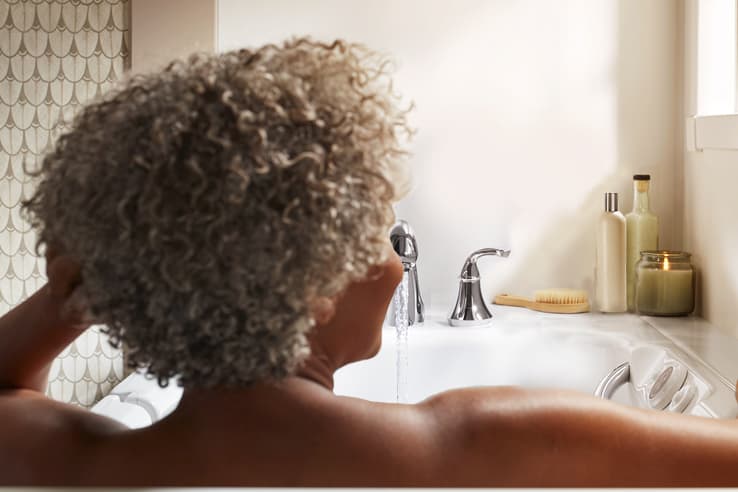
5. Use a Handheld Showerhead
A multifunction, adjustable handshower can help the person with dementia feel more in control of the bathing process. They can see when and where the water touches them, so they aren’t surprised. It also allows you to target hard-to-reach areas and adjust the water flow and direction to provide a gentler rinse for sensitive skin.
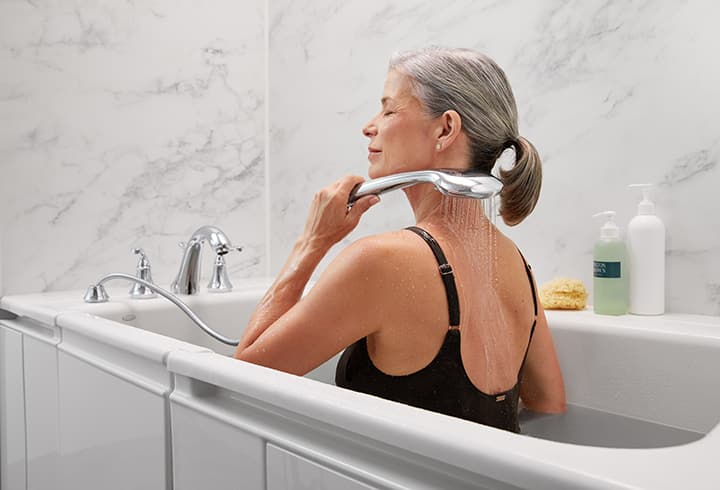
6. Add Handrails and Grab Bars
Easy-grip handrails and grab bars ensure the person with dementia always has a secure grip during their bath. These accessories provide extra support and stability while sitting, standing and bathing, so they feel more independent and have peace of mind.
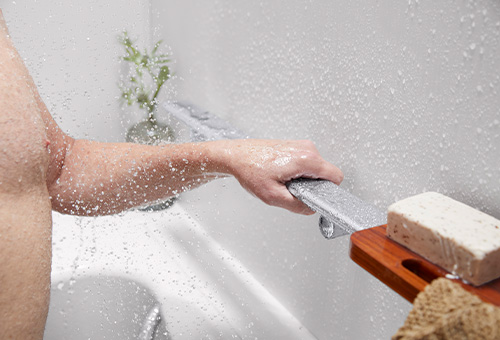
7. Play Relaxing Music
Listening to calming music in the background during bath time creates a tranquil atmosphere for people with dementia. Soft tunes can help promote cooperation by relieving their anxiety and agitation.
To enhance the spa-like bathing experience, pair the songs with soothing hydrotherapy, which delivers a powerful massage to the back, legs and feet.
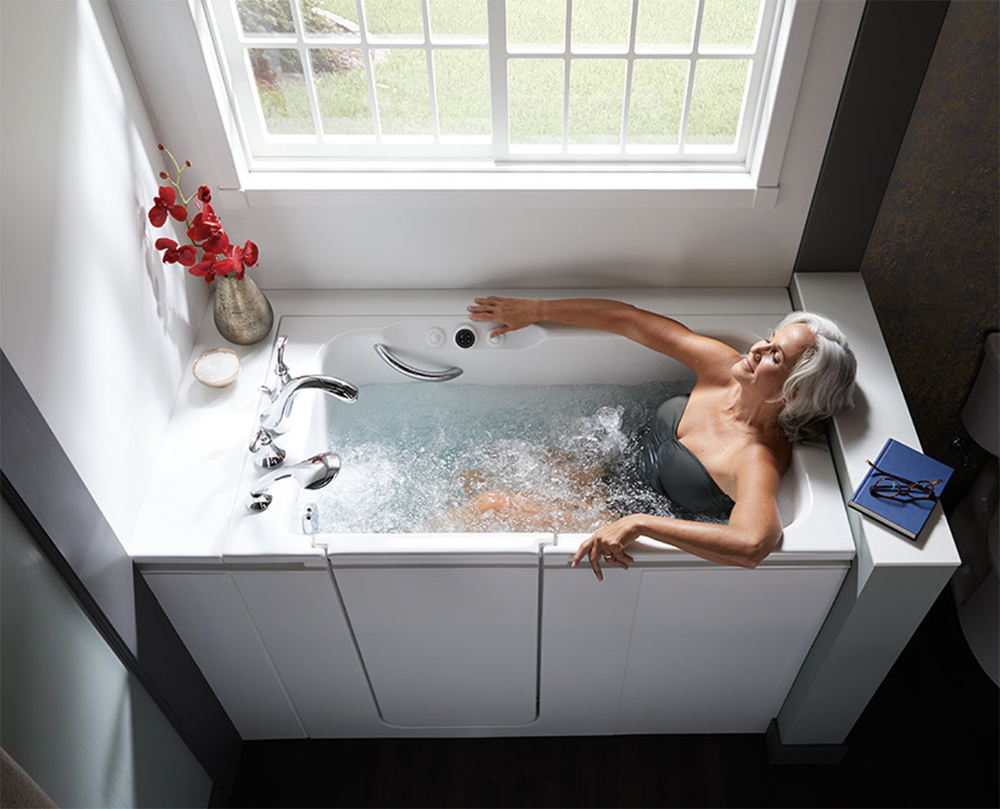
8. Set the Perfect Water Temperature
The ideal bath temperature for a person with dementia is between 90° F and 105° F (32° C–40° C), which is just above the average body temperature. Keeping the water within this range has been shown to promote numerous health benefits, including better sleep, lower blood pressure and stress relief.
To keep your loved one warm and comfortable throughout the bath, turn on the heated backrest and watch their tension melt away.
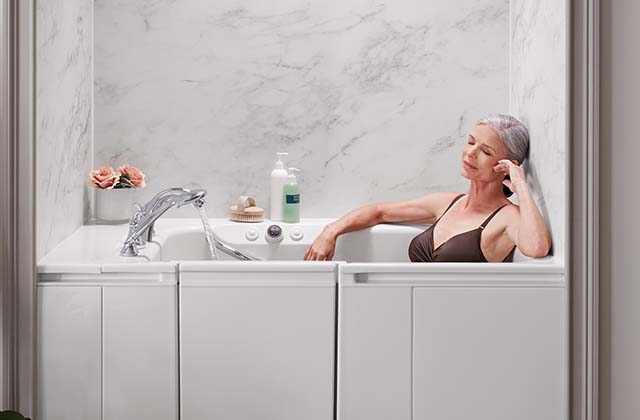
How the Walk-In Bath Creates a Safer, More Relaxing Bathing Experience for a Person With Dementia
People with dementia or Alzheimer’s deserve to feel safe, comfortable and respected while bathing. The safety and comfort features of the KOHLER® Walk-In Bath can help enhance the level of care you provide your loved one and promote their independence so they can stay in the home they love longer.
Make bathing easier for your loved one.
Request A Free Quote
